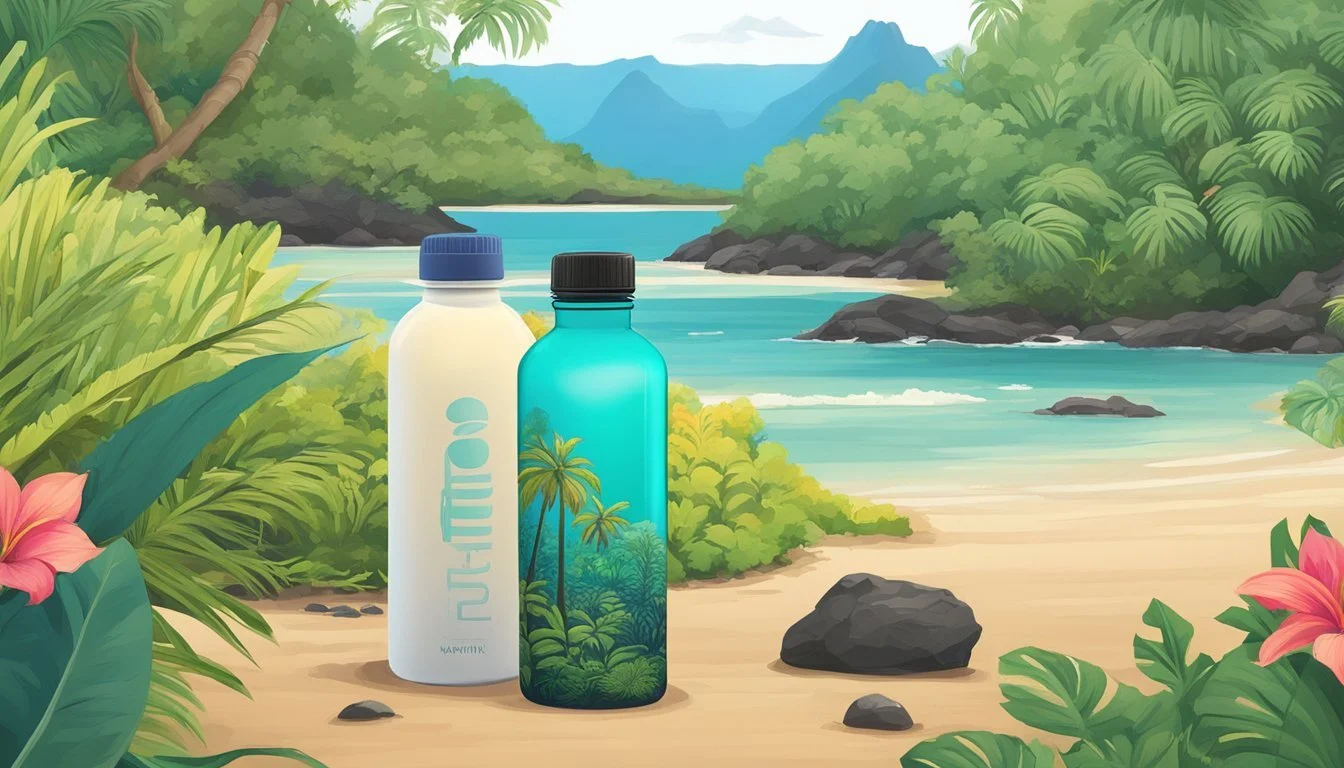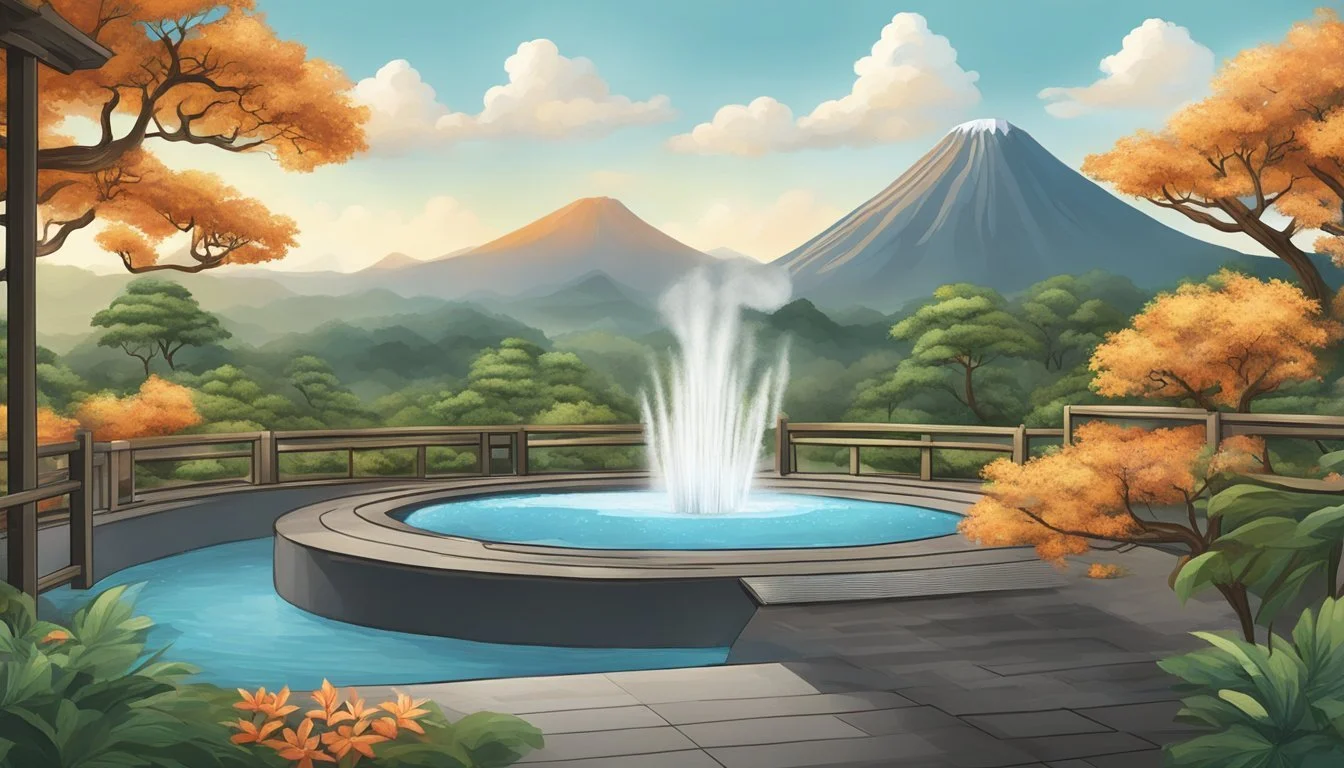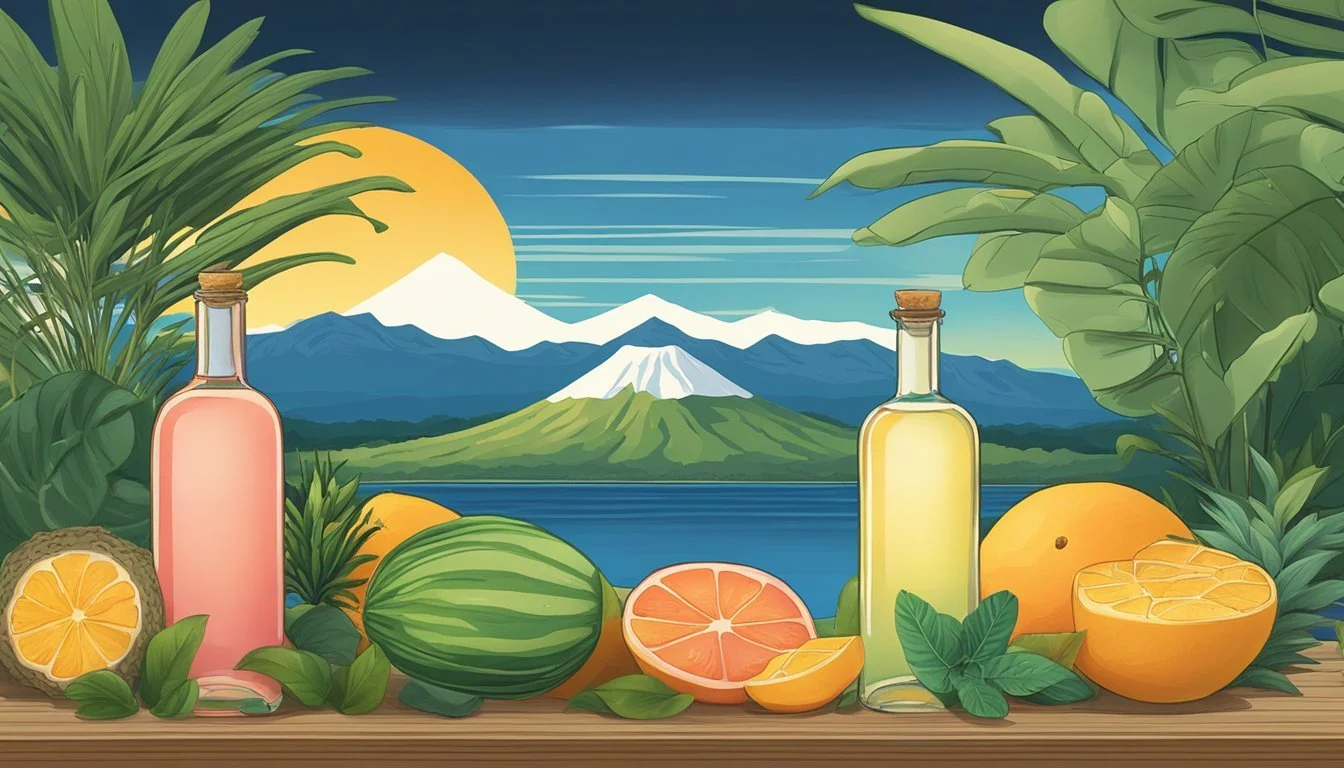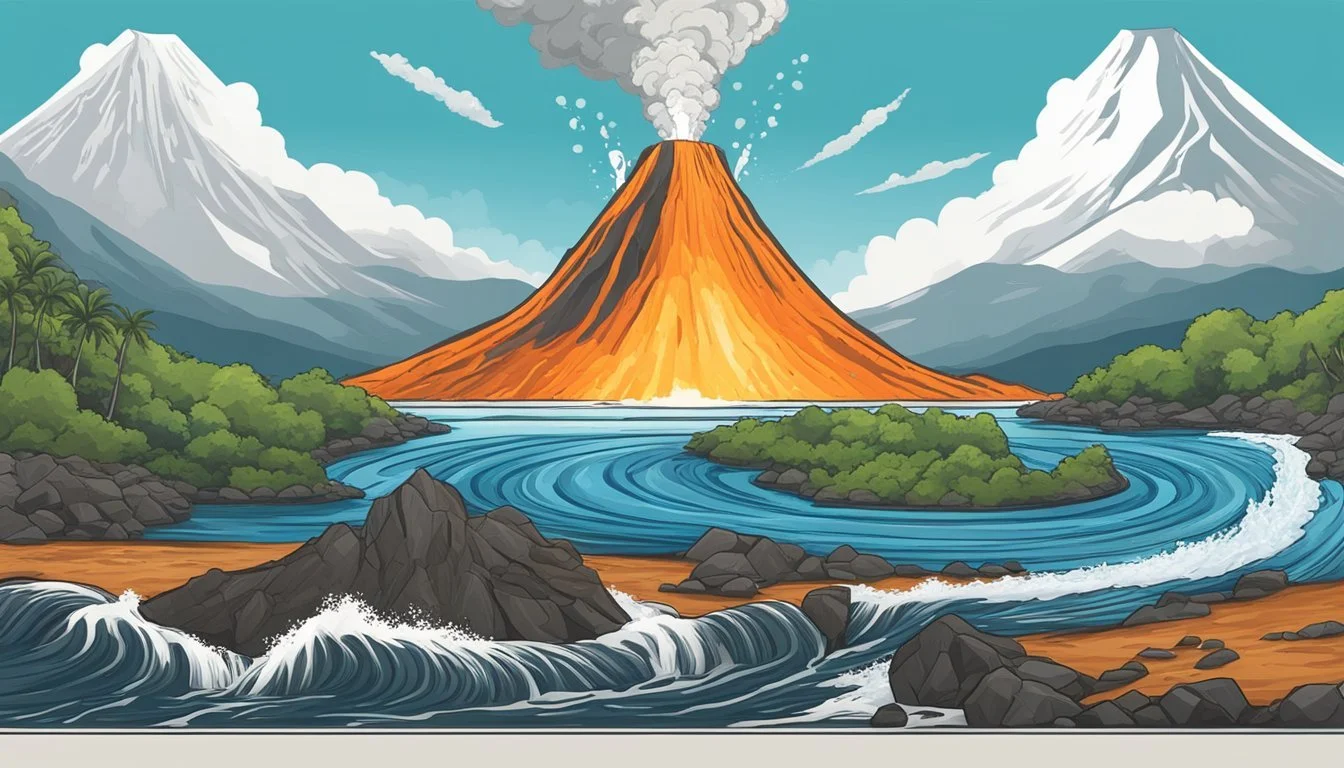Hawai’i Volcanic vs. Zenwtr
Which Bottled Water is Better? Comprehensive Comparison
When deciding between Hawai'i Volcanic and Zenwtr, choosing the best bottled water can seem daunting. Each brand offers unique characteristics, making them popular among hydration enthusiasts. Hawai'i Volcanic boasts a naturally high alkaline pH of 8.8, which can help neutralize body acidity and support vital functions.
In comparison, Zenwtr not only focuses on water quality but also emphasizes sustainability by using bottles made from 100% recycled ocean-bound plastic. This commitment to environmental responsibility makes Zenwtr a compelling option for eco-conscious consumers. Balancing health benefits and environmental impact, both brands offer distinctive advantages.
Whether seeking an alkaline boost or supporting sustainability efforts, informed choices help in selecting the ideal bottled water. These insights into Hawai'i Volcanic and Zenwtr set the stage for a deeper exploration of their qualities, ensuring readers pick the water that best fits their needs.
Background and Origin
Hawai’i Volcanic and ZenWTR differ significantly in terms of their origin and distinct characteristics. This section explores the natural formation of volcanic water and the unique sustainability efforts behind alkaline water.
Understanding Volcanic Water
Hawai’i Volcanic originates from the Mauna Loa volcano on the Big Island of Hawai’i. This water is collected from rain and snowmelt that filters through volcanic rock. As the water seeps through these porous rocks, it accumulates minerals like magnesium, calcium, and silica.
The volcanic landscape of Hawai’i contributes to the water's unique mineral composition. The water's journey through layers of volcanic rock imparts a specific taste and quality that distinguishes it from other bottled water options.
Volcanic water is often touted for its purity and high mineral content. By sourcing their water from an isolated and pristine environment, the producers ensure minimal contamination, delivering a product that is both refreshing and nutrient-rich.
The Roots of Alkaline Water
ZenWTR is a premium alkaline water with a pH level of 9.5. It is notable for its use of 100% post-consumer recycled plastic bottles made from ocean-bound plastic, emphasizing sustainability. Founded by beverage entrepreneur Lance Collins, ZenWTR is available in various sizes and sold in major stores like Whole Foods Markets.
Alkaline water generally has a higher pH than regular drinking water, offering potential benefits such as improved hydration and acid-neutralizing capabilities. ZenWTR achieves its alkalinity naturally, avoiding artificial additives. This natural alkalinity is a key selling point, setting ZenWTR apart from other alkaline water brands that may use artificial methods to raise pH levels.
With ZenWTR, consumers get an environmentally-friendly product that combines wellness benefits and sustainability in its packaging. The focus on durability and health makes ZenWTR a compelling choice for health-conscious and eco-friendly consumers.
Health and Nutritional Facts
Both Hawai’i Volcanic and ZenWTR provide a range of nutritional benefits, including essential minerals and electrolytes, and possess unique pH levels. Here's a closer look at their health and nutritional advantages.
Mineral and Electrolyte Content
Hawai’i Volcanic: This water is rich in minerals due to its natural filtration process through volcanic rock. Notably, it contains silica, which supports bone, hair, skin, nail, and heart health. Additionally, it has significant levels of calcium, magnesium, and potassium.
ZenWTR: Promoted for its health benefits, ZenWTR is also packed with vital minerals and electrolytes. High in calcium and magnesium, it helps maintain healthy bones and muscle function. This water features potassium as well, supporting cardiovascular health.
A quick comparison in tabular form:
Mineral Hawai’i Volcanic ZenWTR Silica High Moderate Calcium High High Magnesium High High Potassium Moderate High
pH Level Implications
The pH level of water plays a crucial role in its health benefits.
Hawai’i Volcanic: This water typically has a neutral to slightly alkaline pH level. This can help balance the body's pH, potentially improving digestion and reducing acid reflux.
ZenWTR: Known for its alkaline pH of 9.5, it aims to neutralize acidity in the body, promoting enhanced hydration and better overall health. Alkaline water enthusiasts believe it helps in detoxifying the body and boosting the metabolism.
For reference:
Brand pH Level Hawai’i Volcanic 7.0-8.0 ZenWTR 9.5
Both brands offer distinct benefits. Hawai’i Volcanic focuses on a rich mineral profile, while ZenWTR stands out with its alkaline properties.
Sustainability and Environmental Impact
Both Hawai'i Volcanic and ZenWTR emphasize sustainable practices and community initiatives. Their efforts span from innovative packaging solutions to active support for environmental conservation programs.
Eco-Friendly Packaging Choices
ZenWTR uses bottles made from 100% ocean-bound plastic, turning waste into a renewed resource. This practice not only reduces plastic pollution but also conserves resources by repurposing existing materials.
On the other hand, Hawai'i Volcanic employs plant-based plastics and biodegradable materials for their bottles. This approach minimizes environmental footprint significantly and supports a circular economy. The brand emphasizes the recyclability and compostability of their packaging, aiming for minimal residual waste.
Conservation and Community Support Initiatives
ZenWTR donates 1% of sales to ocean conservation efforts, showing a strong commitment to reversing the damage done by plastic pollution. They have collaborated with various organizations to fund clean-up drives and marine conservation projects, reflecting a proactive stance on environmental stewardship.
Hawai'i Volcanic invests in local community support and conservation projects, particularly those benefiting the Hawaiian ecosystem. Their initiatives include reforestation programs, habitat protection, and educational outreach to foster environmental awareness. The brand works closely with local environmental groups to ensure their contributions effectively address community needs.
Source and Filtration Processes
Understanding the origin and filtration process of bottled water brands is crucial. This section examines Hawai’i Volcanic and Zenwtr, emphasizing their unique sources and sophisticated filtration techniques.
The Cycle of Volcanic Filtration
Hawai’i Volcanic sources its water from the Mauna Loa volcano. Rain and snowmelt from the summit filter through thousands of feet of porous lava rock. This natural process removes contaminants and enriches the water with essential minerals.
Zenwtr, on the other hand, relies on purified ocean water. It involves desalination and multiple stages of filtration to ensure purity. Zenwtr focuses on removing impurities and ensuring the water is safe for consumption.
Purification and Enhancement Techniques
Hawai’i Volcanic boasts a naturally alkaline pH due to volcanic filtration. The water's journey through Mauna Loa’s lava rock imparts minerals like calcium and magnesium, enhancing its taste and health benefits. This process maintains the natural purity of the water.
Zenwtr employs advanced purification methods, including reverse osmosis and UV treatment. These techniques eliminate contaminants and enhance water quality. While Zenwtr does not benefit from volcanic filtration, its rigorous methods ensure a clean and safe product.
Taste Profile and Culinary Uses
The quality of bottled water can significantly impact its taste and its suitability for culinary applications. Hawai’i Volcanic and Zenwtr offer distinct taste profiles influenced by their unique sources and mineral content.
The Taste of Purity
Hawai’i Volcanic originates from volcanic rock filtration, contributing to its crisp and clean taste. The water has a naturally alkaline pH of around 8.8, enhancing its refreshing quality and subtle mineral notes. This purity makes it suitable for dishes that require delicate, unadulterated flavors.
Zenwtr, on the other hand, is sourced from various springs and undergoes a patented purification process. It offers a smooth and well-balanced taste with a pH level between 7.5 and 8. Its neutral yet hydrating profile complements a range of culinary uses without altering the original taste of the food.
Water Sommelier's Perspective
Water sommeliers highlight the nuanced differences between these two waters. Hawai’i Volcanic is praised for its volcanic origin, providing a unique terroir that enriches its flavor profile. It pairs well with intricate dishes, enhancing their subtlety without overpowering the palate.
Zenwtr is often selected for its consistent and refined taste, making it versatile for various applications. Its smooth and balanced profile is ideal for cooking and beverage preparation, ensuring that the water's purity enhances rather than masks the flavors of the ingredients.
Both waters offer distinct benefits for both direct consumption and culinary creativity, with their unique filtration processes and pH balances making them suitable for a variety of sophisticated uses.
Comparison with Other Brands
When comparing Hawai’i Volcanic and ZenWTR to other popular bottled water brands, key factors such as environmental impact, cost, and quality stand out.
Market Alternatives and Competitors
Various brands compete in the bottled water market, each with unique attributes. Essentia offers ionized alkaline water similar to ZenWTR's 9.5 pH, but lacks ZenWTR's focus on sustainability.
Fiji water, sourced from an artesian aquifer, is prized for its mineral content yet does not use recycled materials like ZenWTR.
Smartwater also provides vapor-distilled water but often includes added electrolytes. Voss and Evian target premium niche markets, boasting pure water sources.
Aquafina and Dasani are widespread but criticized for using purified tap water. LifeWTR adds artistic bottle designs but is comparable to other purified options.
Icelandic Glacial delivers naturally alkaline spring water, similar in pH to ZenWTR yet sans the recycled bottle initiative.
Cost Versus Quality Assessment
Assessing cost in relation to quality, both Hawai’i Volcanic and ZenWTR position themselves at a premium price point. Essentia and Fiji offer similar high-quality hydration, often at a comparable price.
ZenWTR justifies its cost through its use of 100% post-consumer recycled materials, appealing to eco-conscious consumers.
Aquafina and Dasani are economical but perceived as lower quality due to their source.
Smartwater and Evian command higher prices without clear environmental benefits.
The innovative packaging and environmental initiatives of ZenWTR may attract those willing to pay more for sustainability.
Icelandic Glacial offers a similar alkaline profile but at varying costs depending on the retailer. The decision between these brands often hinges on personal values around sustainability and perceived water quality.
Health and Safety Standards
When choosing between Hawai’i Volcanic and ZenWTR, consumers prioritize the health and safety standards to ensure they are drinking the purest and safest water. Both brands emphasize rigorous quality control measures and address potential contamination concerns comprehensively.
Ensuring Water Quality
Hawai’i Volcanic and ZenWTR adhere to strict safety protocols by testing their water extensively. Hawai’i Volcanic captures its water from volcanic springs, benefiting from natural filtration through porous volcanic rock. This process ensures a high level of purity and natural mineral content.
ZenWTR sources its water from pristine locations and places a strong emphasis on maintaining an alkaline pH of 9.5. Regular testing is conducted to uphold this pH level, alongside verifying the absence of harmful contaminants. ZenWTR’s use of ocean-bound plastic for bottling aligns with their commitment to sustainability and health safety.
Addressing Contamination Concerns
Both brands take potential contamination very seriously. Hawai’i Volcanic employs multiple filtration and purification steps to eliminate any present contaminants, ensuring compliance with safety regulations. This includes maintaining an optimal pH range and monitoring for fluoride and other possible impurities.
ZenWTR leverages advanced purification technologies to remove harmful contaminants. This process ensures that the bottled water remains free from pollutants while retaining beneficial minerals. The brand’s transparency in sourcing and testing reassures consumers about the safety and purity of their product. Both brands’ adherence to rigorous testing and compliance with health standards makes them reliable choices.
Packaging and Distribution
When comparing Hawai’i Volcanic and ZenWTR, both brands emphasize sustainability and convenience in their packaging and distribution strategies. Their choices aim to reduce environmental impact while ensuring consumer accessibility.
Environmental Impact of Bottling
Hawai’i Volcanic utilizes glass bottles that are 100% recyclable and strive to minimize their carbon footprint. This brand emphasizes eco-friendly practices by sourcing water sustainably and promoting glass over plastic to avoid pollution.
ZenWTR, on the other hand, offers bottles made from recycled ocean-bound plastic, aluminum, and glass. The flagship bottles are created from 100% recycled PET (rPET). By using reclaimed materials, ZenWTR prevents additional plastic from entering the oceans, which appeals to environmentally conscious consumers.
Convenience and Accessibility
Hawai’i Volcanic is available at specialty stores and select retailers like Whole Foods Market. The glass bottles are elegant but may be heavier and less convenient for on-the-go use.
ZenWTR's diverse packaging options, including lightweight aluminum and glass, cater to different preferences. They are widely distributed across various retail chains, enhancing consumer accessibility. Their packaging diversity ensures that customers can choose based on convenience and environmental considerations.
Consumer Insights and Preferences
Consumers play a crucial role in determining the success of bottled water brands like Hawai’i Volcanic and ZenWTR. Their decisions often hinge on factors such as taste, sustainability, and lifestyle compatibility.
Public Perception and Brand Loyalty
ZenWTR has garnered a positive reputation due to its commitment to sustainability. It features a 100% post-consumer recycled bottle, specifically targeting plastic pollution. Consumers appreciate this eco-friendly approach, with many expressing brand loyalty based on its environmental mission.
Hawai’i Volcanic attracts consumers with its unique origin story. Sourced from an active volcano, it boasts natural filtration and mineral enhancement. This distinct heritage resonates with many, often creating strong brand loyalty among those who prioritize natural sources and health benefits.
Both brands have cultivated strong followings. ZenWTR appeals to environmentally conscious individuals, while Hawai’i Volcanic appeals to those seeking premium, naturally sourced water. These distinct consumer bases enhance loyalty and promote repeat purchases.
Lifestyle and Consumption Trends
ZenWTR and Hawai’i Volcanic cater to distinct lifestyles. ZenWTR markets itself as an ideal choice for eco-conscious consumers. Its focus on reducing plastic waste aligns with a growing trend toward sustainable living. The convenience of a readily available product in major retail stores adds to its appeal.
Hawai’i Volcanic targets consumers who value naturally filtered water with health benefits. Often preferred by athletes and health enthusiasts, its volcanic origin is seen as a mark of purity and quality. The health-conscious demographic appreciates its mineral-rich composition.
Both brands recognize the importance of convenience in consumption. ZenWTR's widespread availability in over 4,000 stores, including Whole Foods, enhances its accessibility. On the other hand, Hawai’i Volcanic's unique selling point lies in its naturally enriched source, appealing to those prioritizing health and wellness.
Together, they reflect a broader trend towards both sustainability and premium natural products in the bottled water market.
More About Hawai’i Volcanic
Acqua Pana vs Hawaii Volcanic: Which Bottled Water is Better?
Antipodes vs Hawaii Volcanic: Which Bottled Water is Better?
Aqua Carpatica vs Hawaii Volcanic: Which Bottled Water is Better?
Arrowhead vs Hawaii Volcanic: Which Bottled Water is Better?
Boxed Water vs Hawaii Volcanic: Which Bottled Water is Better?
Castle Rock vs Hawaii Volcanic: Which Bottled Water is Better?
Core Hydration vs Hawaii Volcanic: Which Bottled Water is Better?
Deer Park vs Hawaii Volcanic: Which Bottled Water is Better?
Hawaii Volcanic vs 1907water: Which Bottled Water is Better?
Hawaii Volcanic vs Alkaline88: Which Bottled Water is Better?
Hawaii Volcanic vs Big Chill: Which Bottled Water is Better?
Hawaii Volcanic vs BodyArmor: Which Bottled Water is Better?
Hawaii Volcanic vs Cascade Mountain: Which Bottled Water is Better?
Hawaii Volcanic vs CBD Living: Which Bottled Water is Better?
Hawaii Volcanic vs Crystal Geyser: Which Bottled Water is Better?
Hawaii Volcanic vs Crystal Lake: Which Bottled Water is Better?
Hawaii Volcanic vs Essence pH10: Which Bottled Water is Better?
Hawaii Volcanic vs Kirkland Signature: Which Bottled Water is Better?
Hawaii Volcanic vs Liquid Death: Which Bottled Water is Better?
Hawaii Volcanic vs Open Water: Which Bottled Water is Better?
Hawaii Volcanic vs Proud Source: Which Bottled Water is Better?
Hawaii Volcanic vs Pure Life: Which Bottled Water is Better?
Hawaii Volcanic vs Purely Sedona: Which Bottled Water is Better?
Hawaii Volcanic vs Richard's Rainwater: Which Bottled Water is Better?
Hawaii Volcanic vs Simple Truth: Which Bottled Water is Better?
Hawaii Volcanic vs Talking Rain AQA: Which Bottled Water is Better?
Hawaii Volcanic vs Weird Water: Which Bottled Water is Better?
Hawaii Volcanic vs Whole Foods 365: Which Bottled Water is Better?
Hawaii Volcanic vs Whole Foods Italian Still Mineral water: Which Bottled Water is Better?
Hawaiian Springs vs Hawaii Volcanic: Which Bottled Water is Better?
Ice Mountain vs Hawaii Volcanic: Which Bottled Water is Better?
Icelandic Glacial vs Hawaii Volcanic: Which Bottled Water is Better?
Just Water vs Hawaii Volcanic: Which Bottled Water is Better?
Mountain Valley Spring Water vs Hawaii Volcanic: Which Bottled Water is Better?
Nestle Pure Life vs Hawaii Volcanic: Which Bottled Water is Better?
Poland Spring vs Hawaii Volcanic: Which Bottled Water is Better?
San Pellegrino vs Hawaii Volcanic: Which Bottled Water is Better?
Smartwater vs Hawaii Volcanic: Which Bottled Water is Better?
Solan de Cabras vs Hawaii Volcanic: Which Bottled Water is Better?
Topo Chico vs Hawaii Volcanic: Which Bottled Water is Better?
Zephyrhills vs Hawaii Volcanic: Which Bottled Water is Better?









